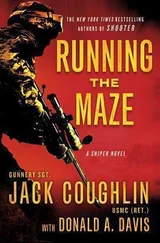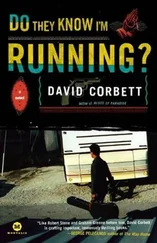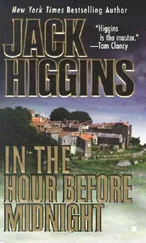— Just tread right on him, the captain instructs. That’s right, on the withers, safest place to step.

They go on eastward. The men are no longer singing. The trench water gives way to thicker mud and their progress is slower. As they advance the shelling grows fiercer and several times they dive deep into the mud to seek cover. They come out dripping with sludge, several pounds heavier.
The column passes more stalled carts with dead horses still attached, mouths grinning in the darkness. Below the mud lie worse things, spongy or rigid forms that collapse under the men’s boots and send up bubbles of foul gas. The soldiers follow only the man in front of them, too dumb and tired to think for themselves. The road disintegrates into a mess of shallow channels breaking off in different directions. The column goes in one direction, then another. The soldiers become lost in the night and the shells that fall upon them could be theirs or those of their enemy, for it makes no difference. A huge howitzer detonates at the rear of the column and two men are pulverized into a mess of blood and bone. One of the new recruits starts gathering the meager remains into a sandbag, but Ashley shakes his head, calling over the booming artillery.
— It’s not safe here. We must keep moving—
They trudge on toward the flashes of the front line, making their way along another drowned road, the ground sinking until it is waist-deep and impassible. Jeffries comes back along the column to consult Ashley, bearing his torch and a map in a waterproof case. The two officers go a few paces away so as not to be overheard. Ashley’s boot slips into a hole and he tumbles into the mud. Jeffries pulls him up by the shoulders, stifling a laugh.
— We’re at Ten Bells, Jeffries says. Must have passed our turning point under the shelling. I suppose A and C companies made the turn. We must come out of this road and traverse to the north. It shan’t be easy, but it can hardly be fouler than this. How are your men?
— They know we’re lost. We’re always bloody lost.
Ashley leads his men up out of the sunken road. On hands and knees they scramble up the slope of mud, tossing rifles up and clawing at the gunk, sliding back down and squirming up until they flop over. They travel northeast across the refuse of old battlefields. The men march with their eyes half-open. They can no longer feel their feet. Some collapse and they are ordered forward, and when this fails they are cajoled and insulted and dragged back into the column. The soldiers drain their water bottles and even in the frost they sweat under seventy-pound loads until the sweat turns clammy and makes them shiver. Once an hour the officers halt to let the men rest, but later Jeffries worries that once halted the men will not start again, so there are no further breaks.
The sky goes from rain to icy rain. At three o’clock in the morning it begins to snow, the thick flakes silhouetted under the star shells flaring and sinking over no-man’s-land in the distance. The column descends into a shallow basin of limbless trees and a few minutes later a barrage of shrapnel opens upon them, the metal pellets bursting and singing through the broken forest. Two of Lieutenant Bennett’s men are killed and Ashley loses another, a lance corporal who is all but decapitated by a huge metal shard. The wounded are taken to the aid station and Ashley leads his men around a vast shell crater. At the far side of the crater Ashley sees a shadowy figure sunk up to his waist in mud. Ashley halts his men and calls out to the figure. It is difficult to hear over the crashing artillery.
— Just leave me be, sir, the man begs. Soon I’ll be out of everyone’s misery.
— Who are you?
— Evans, sir, C Company. Hit in the leg. Fell in here and they never saw me. I don’t want to trouble no one. No point in bringing me out, only for me to die under the Empress. You can shoot me, sir—
— Rubbish.
It takes ten minutes to extract the man from the mud, and then he has to be half-carried by Ashley’s men, dripping and exhausted. His leg wounds are slight, but he has lost his rifle and most of his equipment. He repeats over and again that he wishes he had drowned where he lay. Ashley tells him to shut up.

At dawn they reach the ruins of Patience Trench. The Berkshires relieve a ragged battalion of the Manchester Regiment identifiable only by their accents, their uniforms too caked with mud to reveal any insignia. The Manchesters begin to file out as soon as Ashley’s platoon approaches. One of the Manchesters cadges a cigarette from Private Mayhew.
— Yous are after the Empress, aren’t yous?
— Suppose we are, Mayhew says.
— Did you know, you can tell the weather by her?
— Is that so?
— Look up at her in the morning, and if she’s there it’s going to rain today.
— Very funny.
A second Manchester takes a drag from the cigarette and joins in the conversation.
— There’s more to it than that. So long as she’s looking down on you, you’ll suffer more than you could believe. She belongs to the Huns. She’s their good luck, and you won’t believe the misery we’ve had under her. Last night we went out to cut the wire for you lot. We had two lads wounded and drowned in the mud, sucked into the ground. Let me tell you, you’re better off never looking in her direction. If you look up at the chalk and see her face in it, your number’s up. All them that drowned, they seen her face—
Mayhew shakes his head. — She won’t be winking at me, chum.
The Manchester raises his hand in protest.
— Listen. I didn’t say wink. You look at her, she looks right back. A pair of blue eyes. That’s all it takes.
A captain from the Manchesters debriefs the B Company officers for the handover. The captain says the mud has gotten much worse over the past week. The dugouts have all flooded and there is no decent cover. A few days ago they lost a Lewis gun to the mud. The men nearly drowned trying to extract it. Last night the Manchesters opened a hole in the British wire in preparation for the attack, but even that simple task was torture.
— We’re barely keeping our heads above water, the captain says, and now they’ve sent you in to attack.
— We’ll manage, Jeffries says.
Ashley tries to guide his men into position for the attack tomorrow, but the ground bears little relation to the neat lines of his field map. He is looking for the second line of Patience Trench, a short lane called Patience Support from which his platoon will attack. But everything has been decimated by rain and shelling. In some places there are sandbags stacked a few feet high, in others only fortified shell craters linked by shallow flooded ditches. Patience Trench was held by the Germans until the July fighting and their dead are strewn everywhere. Among all the crevices hangs the same sweet rotting stench. The corpses are built into trench walls and parapets, their boot soles or black hands jutting out from the chalk.
In the grim half-light of dawn Ashley searches the shadowy ground with his torch, looking for a safe place to step. Bodies everywhere. A set of ivory teeth gaping from the dirt. It is impossible not to step on the corpses, so Ashley switches the torch off. In some places the trench is impassible, a well of bubbling silt, and the men have to climb onto the parados and dash under gunfire to their positions. Two men are hit in this way, one of them shot through the head and killed instantly. By late morning the four platoons of B Company have reached their positions. They will stay here until they attack the next morning.
Читать дальше













